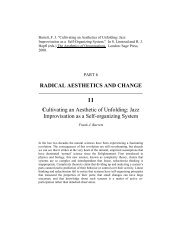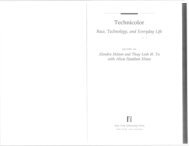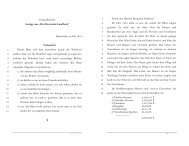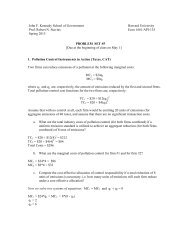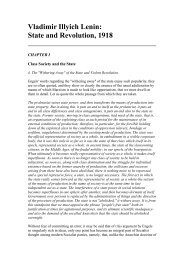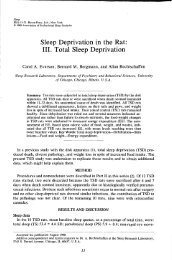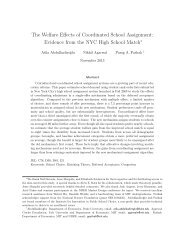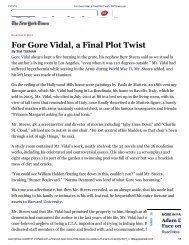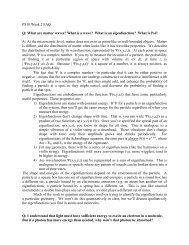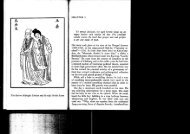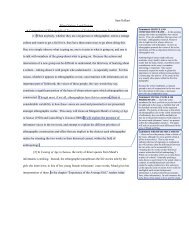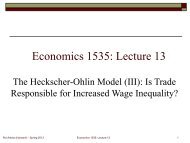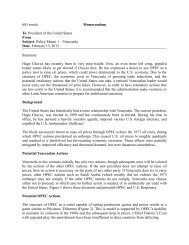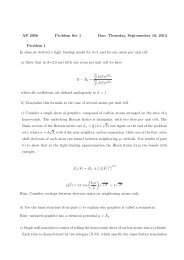CUisis AuthoU(s): ReinhaUt Koselleck and Michaela W ... - iSites
CUisis AuthoU(s): ReinhaUt Koselleck and Michaela W ... - iSites
CUisis AuthoU(s): ReinhaUt Koselleck and Michaela W ... - iSites
You also want an ePaper? Increase the reach of your titles
YUMPU automatically turns print PDFs into web optimized ePapers that Google loves.
<strong>Koselleck</strong> + Crisis<br />
lead to the realm of freedom."156 Marx's theory of crisis was carefully formulated<br />
so as to allow two interpretations of crisis. These continue to influence<br />
economic interpretations of the modern world as well as those<br />
derived from philosophies of history.<br />
VII. LATER USES OF CRISIS: AN OVERVIEW AND<br />
ASSESSMENT OF ITS PRESENT STATUS<br />
From the nineteenth century on, there has been an enormous quantitative<br />
expansion in the variety of meanings attached to the concept of crisis, but<br />
few corresponding gains in either clarity or precision. "Crisis" remains a<br />
catchword, used rigorously in only a few scholarly or scientific contexts.<br />
Schumpeter denies its utility even for political economy, which is why, in<br />
his analysis of business cycles, he gives "no technical meaning to the term<br />
crisis, but only to the concepts of prosperity <strong>and</strong> depression."'157<br />
Since World War I, the Great Depression, <strong>and</strong> World War II, cultural<br />
critiques'58 <strong>and</strong> global interpretations with "crisis" in their titles, have proliferated.<br />
In 1918, Paul published three essays on "the intellectual<br />
Valkury<br />
crisis": "La crise militaire est peut-etre finie. La crise iconomique est visible<br />
dans tout sa force; mais la crise intellectuelle, plus subtile, et qui, par sa<br />
nature, meme, prend les apparences les plus trompeuses (puisqu'elle se<br />
passe dans le royaume meme de la dissimulation), cette crise laisse difficilement<br />
saisir son veritable point, sa phase."'59 ("The military crisis is perhaps<br />
over; the economic crisis is all too evident. But the intellectual crisis is<br />
more subtle. By its very nature it can produce highly misleading impressions.<br />
These are due to the dissimulation which so often plays a part in<br />
intellectual life. Thus it becomes difficult to underst<strong>and</strong> the real meaning of<br />
the intellectual crisis <strong>and</strong> to diagnose the phases of its development.") Ortega<br />
y Gasset, drawing a parallel to the first century before Christ <strong>and</strong> to<br />
156 Engels, "Herrn Eugen Duhrings Umwilzung der Wissenschaft. 'Anti-Dtihring' "<br />
(1878), MEW vol. 20 (1962), 264<br />
~-7 Joseph A. Schumpeter, Konjunkturzyklen. Eine theoretische, historische und statistische<br />
Analyse des kapitalistischen Prozesses (1939), ed. Klaus Dockhorn, vol 1 (G6ttingen,<br />
1961), 11. See also the English edition, Business Cycles: A Theoretical, Historical<br />
<strong>and</strong> Statistical Analysis of the Capitalist Process, vol. 1 (New York, London, 1939), 5:<br />
"We shall not give any technical meaning to the term crisis but only to prosperity <strong>and</strong><br />
depression."<br />
18 See e.g. Ehrenfried Muthesius, Urspriinge des modernen Krisenbewusstseins (Munich,<br />
1963).<br />
159 Paul Valiry, "La crise de l'8sprit" (1918), Varietd, vol. 1 (Paris, 1924), 15.<br />
397



